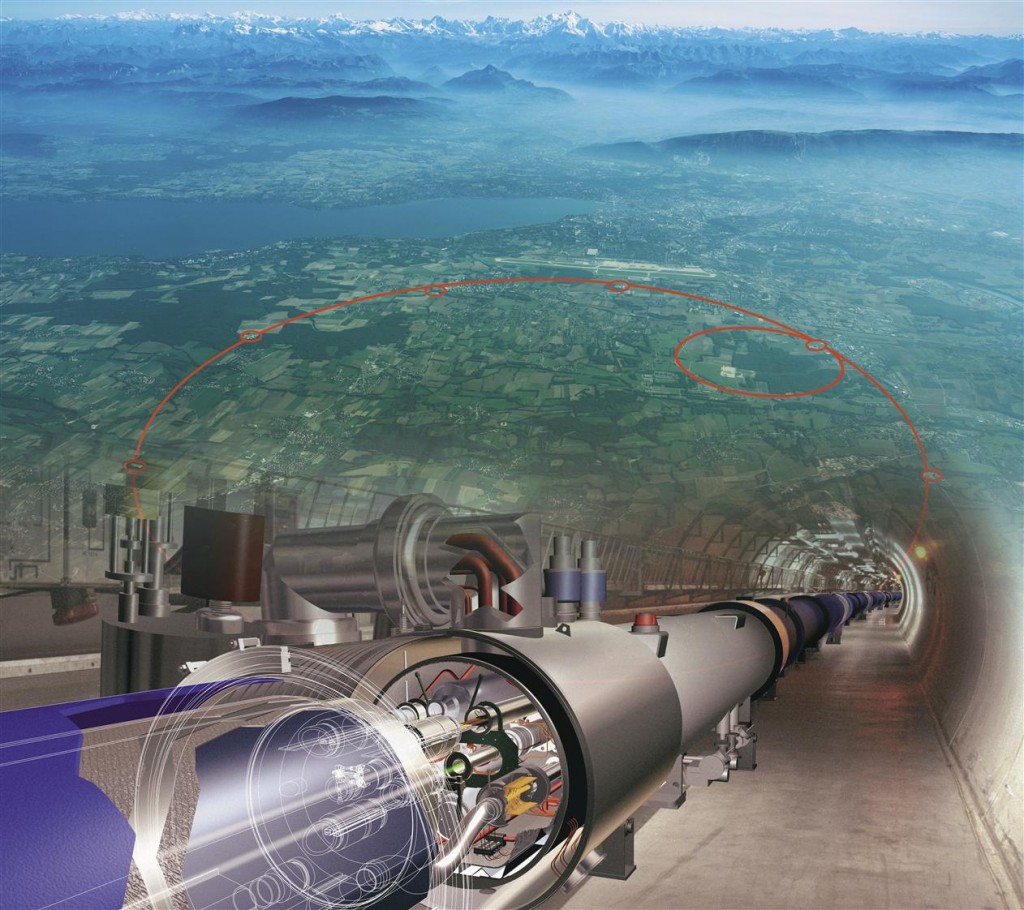
Image courtesy of CERN
The Large Hadron Collider (LHC), the most powerful particle accelerator ever built, smashes tiny particles into each other in an effort to reproduce the conditions that existed within a billionth of a second after the Big Bang.
But simulating collisions of these particles and their activity during an infinitesimal slice of time creates major computational challenges. When particles collide at high speeds, not only is energy released, but many subatomic particles pop into existence briefly. Different LHC detectors register results differently, and computational simulations must be able to account for these differences in hardware and sort through the background noise in order to accurately simulate an event.
RENCI’s high performance computing (HPC) division works with high-energy physicists around the word to improve the performance of LHC simulation codes. The computationally-intensive simulations of LHC events use many millions of hours of compute time each year, according to Rob Fowler, PhD, head of RENCI’s HPC research division.
“We are working to improve their simulations,” said Fowler. “Because the simulations are so complex, if we can improve performance by only 1 percent, that alone is worth $1 million because of the compute time it will save. Our code optimization helps scientists do their simulations more economically.”
The simulations, and the codes that run them, are crucial to physicists in their quest to understand the first moments of the universe’s existence and the elementary particles and forces that shaped the universe of today. They helped in the discovery last year of the particle believed to be the Higgs boson, a discovery that could help explain the nature of mass and lead to even more discoveries about the early universe.
The same code helps doctors and medical researchers simulate radiation treatment plans for cancer patients and assisted engineers who designed the radiation shielding on the international space station.
The RENCI work is supported by the U.S. Department of Energy’s Office of Science effort to improve the GEANT4 (GEometry ANd Tracking) software toolkit used by scientists around the world. RENCI contracts with Argonne National Laboratory for its GEANT4 work. The code optimization work also complements RENCI’s research with the SciDAC Institute for Sustained Performance Energy and Resilience (SUPER) and is supported by the DOE’s Scientific Discovery through Advanced Computing (SciDAC) program.
More information


